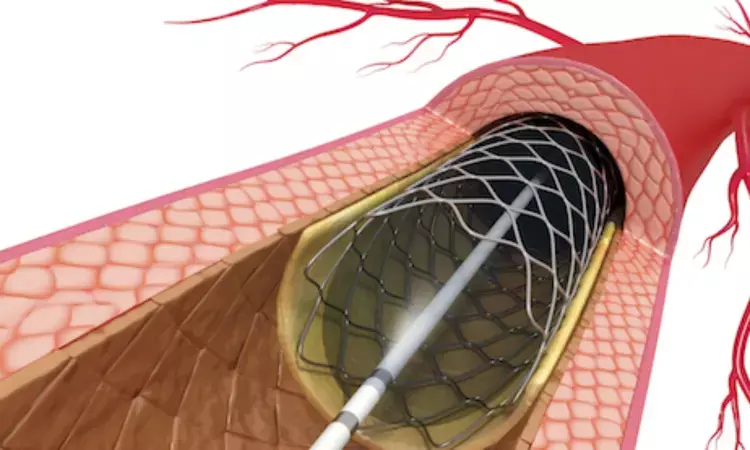- Home
- Medical news & Guidelines
- Anesthesiology
- Cardiology and CTVS
- Critical Care
- Dentistry
- Dermatology
- Diabetes and Endocrinology
- ENT
- Gastroenterology
- Medicine
- Nephrology
- Neurology
- Obstretics-Gynaecology
- Oncology
- Ophthalmology
- Orthopaedics
- Pediatrics-Neonatology
- Psychiatry
- Pulmonology
- Radiology
- Surgery
- Urology
- Laboratory Medicine
- Diet
- Nursing
- Paramedical
- Physiotherapy
- Health news
- Fact Check
- Bone Health Fact Check
- Brain Health Fact Check
- Cancer Related Fact Check
- Child Care Fact Check
- Dental and oral health fact check
- Diabetes and metabolic health fact check
- Diet and Nutrition Fact Check
- Eye and ENT Care Fact Check
- Fitness fact check
- Gut health fact check
- Heart health fact check
- Kidney health fact check
- Medical education fact check
- Men's health fact check
- Respiratory fact check
- Skin and hair care fact check
- Vaccine and Immunization fact check
- Women's health fact check
- AYUSH
- State News
- Andaman and Nicobar Islands
- Andhra Pradesh
- Arunachal Pradesh
- Assam
- Bihar
- Chandigarh
- Chattisgarh
- Dadra and Nagar Haveli
- Daman and Diu
- Delhi
- Goa
- Gujarat
- Haryana
- Himachal Pradesh
- Jammu & Kashmir
- Jharkhand
- Karnataka
- Kerala
- Ladakh
- Lakshadweep
- Madhya Pradesh
- Maharashtra
- Manipur
- Meghalaya
- Mizoram
- Nagaland
- Odisha
- Puducherry
- Punjab
- Rajasthan
- Sikkim
- Tamil Nadu
- Telangana
- Tripura
- Uttar Pradesh
- Uttrakhand
- West Bengal
- Medical Education
- Industry
NOTION-3 Trial: PCI Reduces Major Adverse Events in TAVI Patients with Coronary Artery Disease

Denmark: NOTION-3 randomized trial has highlighted the advantages of percutaneous coronary intervention (PCI) for patients undergoing transcatheter aortic valve implantation (TAVI), revealing that PCI can significantly reduce the risk of major adverse events compared to conservative treatment strategies.
"In patients with coronary artery disease (CAD) undergoing TAVI, PCI was linked to a reduced risk of experiencing a composite of death from any cause, myocardial infarction, or urgent revascularization over a median follow-up period of two years, compared to those receiving conservative treatment," the researchers reported in the New England Journal of Medicine.
Transcatheter aortic-valve implantation has become a pivotal treatment option for patients with severe aortic stenosis, especially those at high risk for traditional open-heart surgery. Many of these patients also suffer from CAD, complicating their treatment and management. In the new study, Jacob Lønborg, Department of Cardiology, Copenhagen University Hospital–Rigshospitalet, Copenhagen, Denmark, and colleagues aimed to determine the benefit of PCI in patients with stable coronary artery disease and severe aortic stenosis who are undergoing TAVI.
For this purpose, the researchers conducted an international trial where patients with severe symptomatic aortic stenosis and at least one coronary artery stenosis (with a fractional flow reserve of 0.80 or less or a diameter stenosis of at least 90%) were randomly assigned in a 1:1 ratio to either undergo PCI or receive conservative treatment, in addition to undergoing TAVI.
The primary endpoint was a major adverse cardiac event, defined as a composite of death from any cause, myocardial infarction, or urgent revascularization. Safety assessments, including bleeding events and procedural complications, were also evaluated.
The following were the key findings of the study:
- A total of 455 patients underwent randomization: 227 to the PCI group and 228 to the conservative treatment group.
- The median age of the patients was 82 years, and the median Society of Thoracic Surgeons–Procedural Risk of Mortality score (on a scale from 0 to 100%, with higher scores indicating a greater risk of death within 30 days after the procedure) was 3%.
- At a median follow-up of 2 years, a major adverse cardiac event (primary endpoint) had occurred in 26% of patients in the PCI group and 36% in the conservative treatment group (hazard ratio, 0.71).
- A bleeding event occurred in 28% of patients in the PCI group and 20% in the conservative treatment group (hazard ratio, 1.51).
- In the PCI group, 3% of patients had PCI procedure-related complications.
"The latest findings reinforce the role of PCI in enhancing patient outcomes and underscore the importance of tailored, evidence-based treatment plans for those undergoing TAVI," the researchers concluded.
Reference:
Lønborg J, et al "PCI in patients undergoing transcatheter aortic-valve implantation" N Engl J Med 2024; DOI: 10.1056/NEJMoa2401513.
Dr Kamal Kant Kohli-MBBS, DTCD- a chest specialist with more than 30 years of practice and a flair for writing clinical articles, Dr Kamal Kant Kohli joined Medical Dialogues as a Chief Editor of Medical News. Besides writing articles, as an editor, he proofreads and verifies all the medical content published on Medical Dialogues including those coming from journals, studies,medical conferences,guidelines etc. Email: drkohli@medicaldialogues.in. Contact no. 011-43720751


